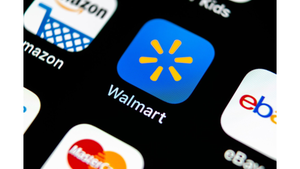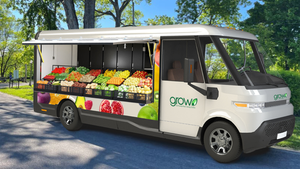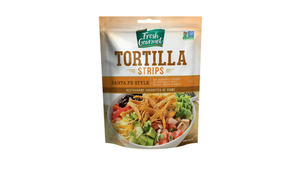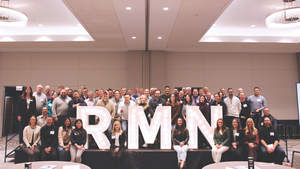Investor Buys Into Discounter Grocery Outlet
Berkshire Partners said last week it has agreed to invest in Grocery Outlet here to help fund expansion for the discounter a move that signals a willingness by private equity to back formats at the edges of the industry, observers told SN. Investments in high-end natural-food chains like Whole Foods by Leonard Green and this investment in a discount chain are likely to be more common
October 19, 2009
ELLIOT ZWIEBACH
BERKELEY, Calif. — Berkshire Partners said last week it has agreed to invest in Grocery Outlet here to help fund expansion for the discounter — a move that signals a willingness by private equity to back formats at the edges of the industry, observers told SN.
“Investments in high-end natural-food chains like Whole Foods by Leonard Green and this investment in a discount chain are likely to be more common over the next five years, whereas investment in the industry's sweet spot, like Yucaipa Co.'s ongoing investment in A&P, will be more of the exception,” Andrew Wolf, an analyst with BB&T Capital Markets, Richmond, Va., said.
Berkshire, based in Boston, did not disclose terms of its investment with Grocery Outlet. But the company said it typically seeks transactions in which it can invest between $50 million and $500 million of equity capital. Chris Hadley, managing director of Berkshire, in a statement said Grocery Outlet “has a unique operating model that offers customers tremendous values on brand names they trust in a friendly, high-quality shopping environment.”
Neil Stern, senior partner at McMillan Doolittle, Chicago, said deals that exchange cash for equity, as the Berkshire's transaction appears to do, will be more common that leveraged buyouts going forward. “Berkshire is probably getting a percentage of the ownership of Grocery Outlet, just as Leonard Green & Partners got a 17% equity stake in Whole Foods when it put in $425 million last year,” Stern noted.
He said he agreed with Wolf's comments “because companies on the periphery of the industry are the ones with a lot of promise and good growth prospects.”
Willard Bishop, principal at Willard Bishop Associates, Barrington, Ill, also said he sees investors looking for opportunities on what he called the industry's flanks.
“I think the limits of credit are quite severe for mainline food retailers, but I can see a number of private equity investors who are interested in more specialized formats, which Grocery Outlet stores certainly are.
“Many of the private equity investors who take that approach are looking for concepts that have already been worked out but whose operators have limited capital and need the money to grow and keep building the concept. So part of Berkshire's equity infusion is apparently a major commitment to grow Grocery Outlet organically in additional markets.”
Bishop said he sees Grocery Outlet as more of a challenger to dollar stores than any other format “because they appeal to price-sensitive shoppers who are opportunistic.”
Jonathan Ziegler, principal in PUPS investment Management, Santa Barbara, Calif., said he doesn't see anything unusual about equity infusions in a cash-rich business like supermarkets, regardless of the economic environment.
“These are stable businesses with stable cash flows that are attractive to investors,” he pointed out. “It seems more likely that an investor will put money into a business with steady cash flow than one that's more cyclical in nature.
“That's what makes supermarkets so attractive to investors in good and bad times, and a recession is a logical time to make this kind of investment because the liquidity is available for these kinds of good deals.”
Grocery Outlet is an extreme-value discounter that purchases surplus inventory directly from more than 2,500 grocery manufacturers. The company operates 135 stores — operated by independent owners — in Arizona, California, Idaho, Nevada, Oregon and Washington under the Grocery Outlet Bargain Markets banner, with annual sales exceeding $500 million.
It's a family-owned bargain-warehouse business headed by the third generation of the Read family, including Peter Read, chairman; Steven Read, executive chairman; along with MacGregor Read and Eric Lindberg, co-chief executive officers.
According to the company's website, the chain offers brand-name products at 40% to 60% below conventional retailers, encompassing all categories, though it offers fresh meat only at selected stores.
“We look forward to expanding Grocery Outlet with the strategic and financial support of our new partners at Berkshire,” MacGregor Read said in a statement.
Berkshire has been investing in mid-sized companies since the mid-1980s. Among the 90 operating companies in which it has invested are at least three value retailers: National Vision, operators of value-oriented vision centers; Party City, a retailer of party goods; and Savers, which sells second-hand merchandise.
“Over the past few years, Grocery Outlet has successfully invested in broadening its product offering, improving its marketing efforts and opening new stores,” Hadley said in a statement. “We are excited to partner with the [company] and believe it is very well-positioned for future growth.”
Grocery Outlet is the company that sought in 2006 to adopt the Lucky name and everyday-low-price program for some of its stores after the original Albertsons — and subsequently Supervalu — had failed to use the name for three years. The company managed to put the name up on a single store before it was enjoined by the courts and ultimately denied rights to the name.
About the Author
You May Also Like






